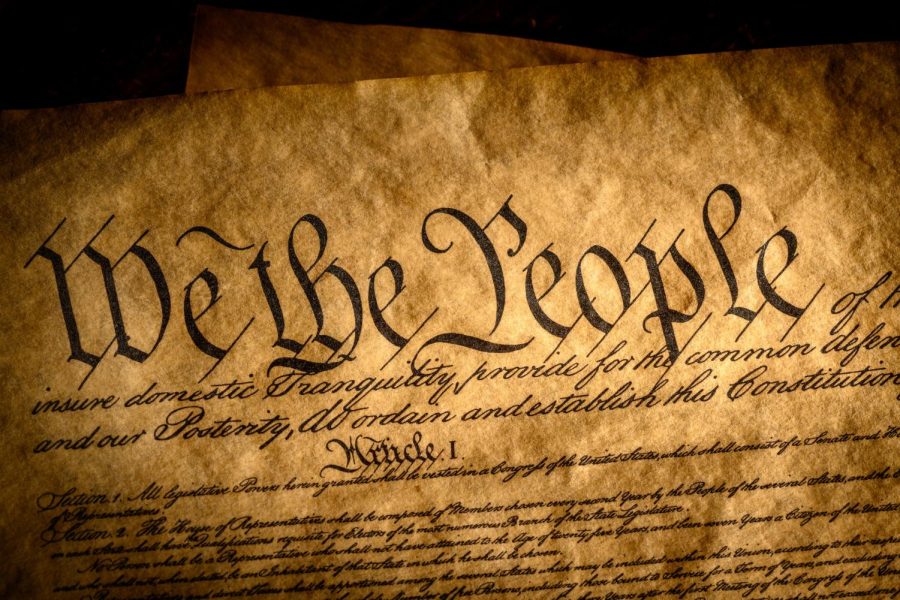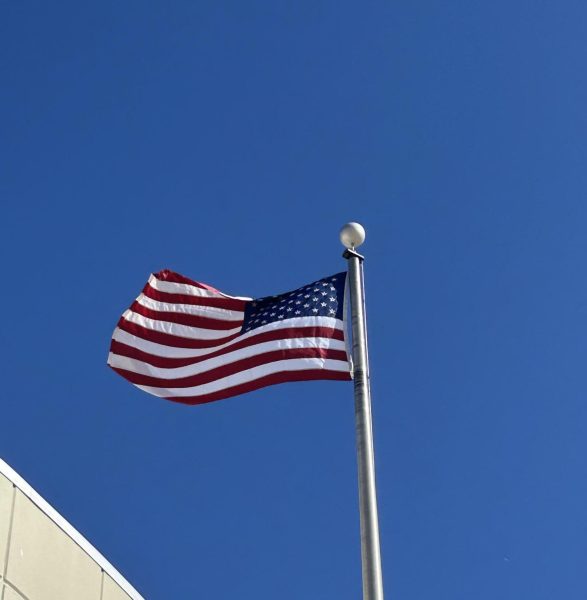What’s a Constitutional Convention?
We the people, the beginning of the preamble to the United States constitution.
Within the United States Constitution lies Article V, a pathway to bypass the federal government to add amendments directly to the U.S. Constitution by a constitutional convention. 19 states so far have joined the Convention of States project to add additional modifications to our existing constitution.
Several states have joined the process to implement radical changes within the lawful boundaries of changing the country. The Convention of States has to reach 34 states for Congress to call a convention; They added four new states in 2022.
“I don’t think the framers of the constitution would have any problem with the Convention of States; they wrote it in the [U.S.] Constitution,” said Dr. Reed Welch, Teel Bivins, professor of American Politics.
When the founders drafted the original constitution in 1779, there were several different actions that the document would have legal standing over. The 3/5th compromise and legal backing of the Doctrine of Discovery were not actions with which the founders were concerned.
“Within the constitutional bounds, the Constitution does provide for [a constitutional convention], so they’re not doing anything that’s illegal in any way,” Welch said. “We’ve made a lot of changes over the decades, that there’s no amendment where nothing’s been changed.”
Our current system of government gives the power of interpreting the law to the judicial branch, the federal court system. All changes to the constitution that help determine the U.S. constitution are created by judicial nominations or Congress, not directly with the people.
“Governor Abbott, for example, some years ago published a booklet where he advocated for this and proposed a number of amendments to the U.S. Constitution,” Welch said. “All of them are centered around…the federal government has gotten too big throughout its history and wants to put it back in its place.”
A retelling of this story is the U.S. Civil War, where states were unhappy about being told by the federal government to free their slaves, while the north still had legal slavery. Federal governments are supposed to take an active role in forcing states to adopt more popular reforms. Overriding the federal government, in the interest of state’s rights, is rejecting the path of national progress.
“There are term limits every two years; we have elections,” Welch said. “One way to limit terms is to quit voting for the same people over and over again.”
Gerrymandering has been a significant issue in the United States since the Rucho v. Common Cause ruling. There is no immediate fix to create an open seat that the working people of the U.S. would choose.
“[Convention of States is] more on the right side of the spectrum,” Welch said. “I don’t think it’s reached the masses quite yet, but there’s quite a few people aware of it, and Texas passed it some years ago.”
States and politicians are endorsing the Convention of States for a multitude of reasons. One of these politicians, Mike Braun, a senator from Indiana and wishes the matter of interracial marriage “should have never been federalized,” recently endorsed the project.
If you would like to learn more, you can visit the Convention of States website or view this TikTok playlist.











